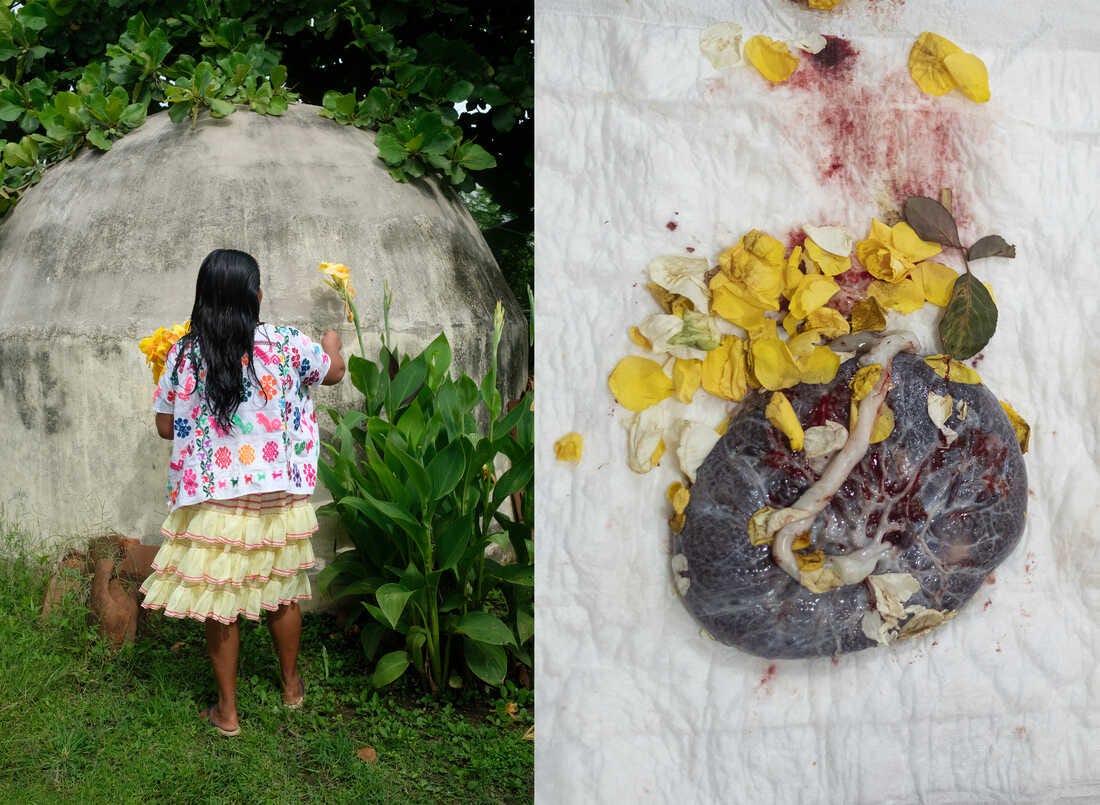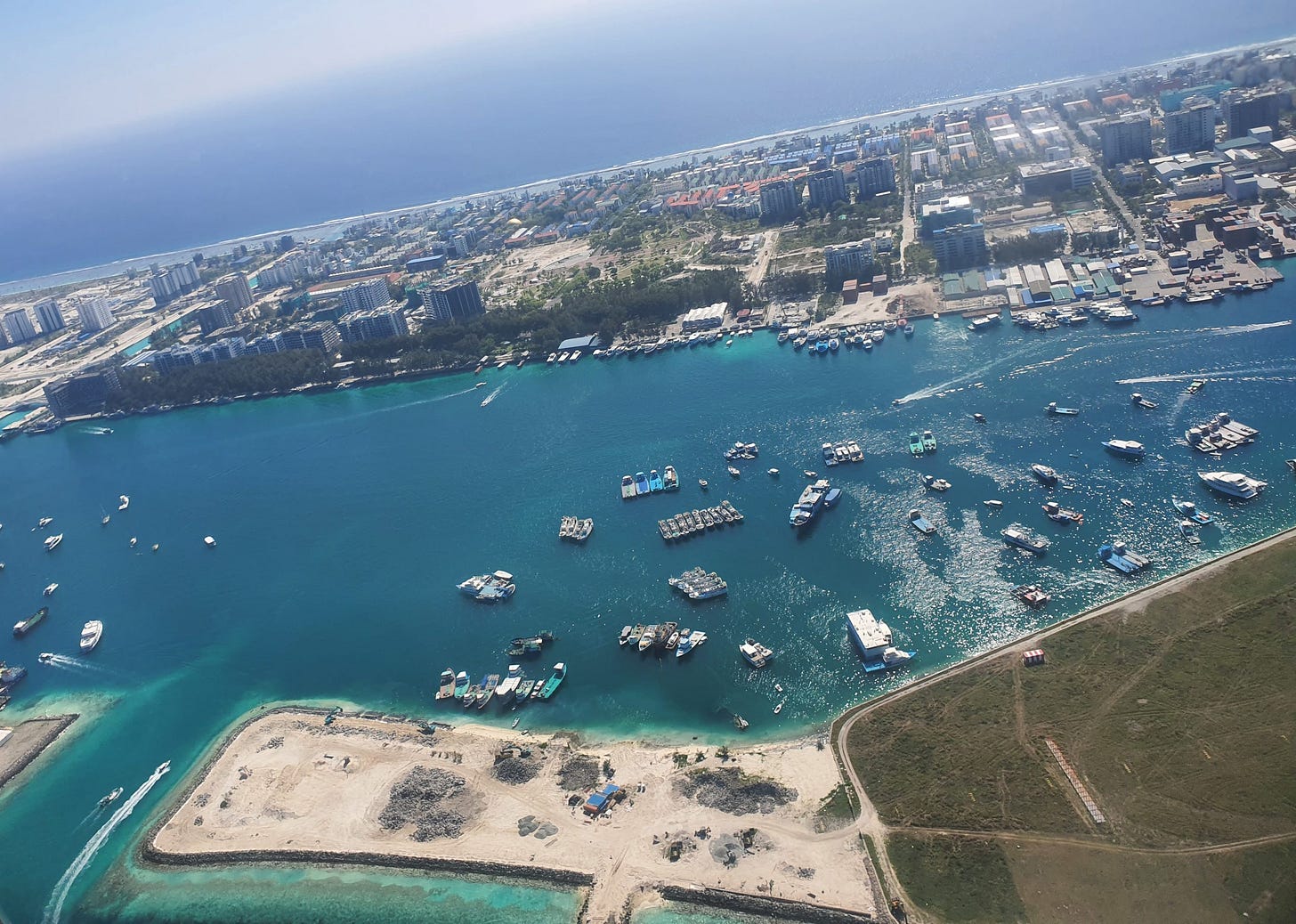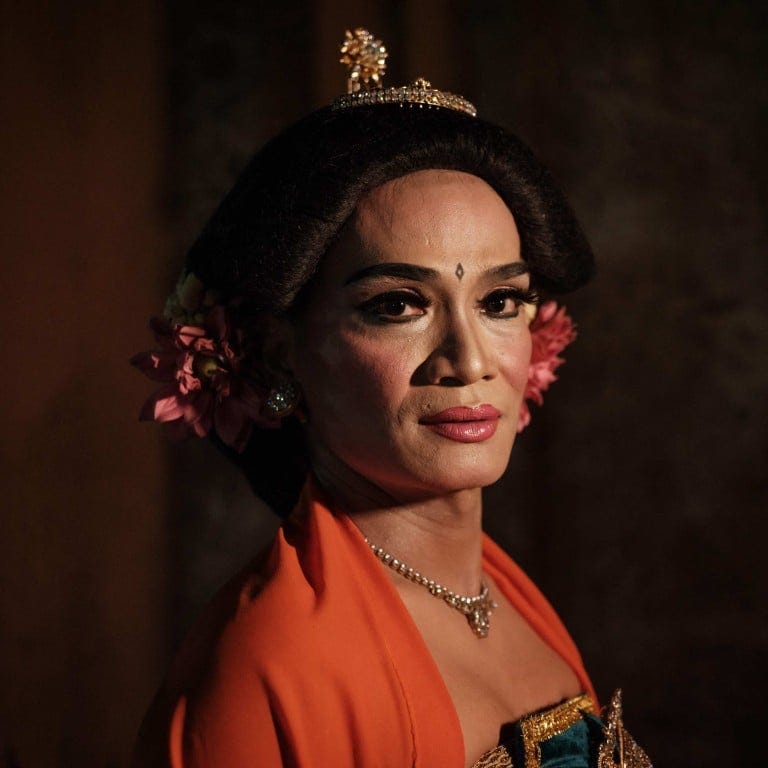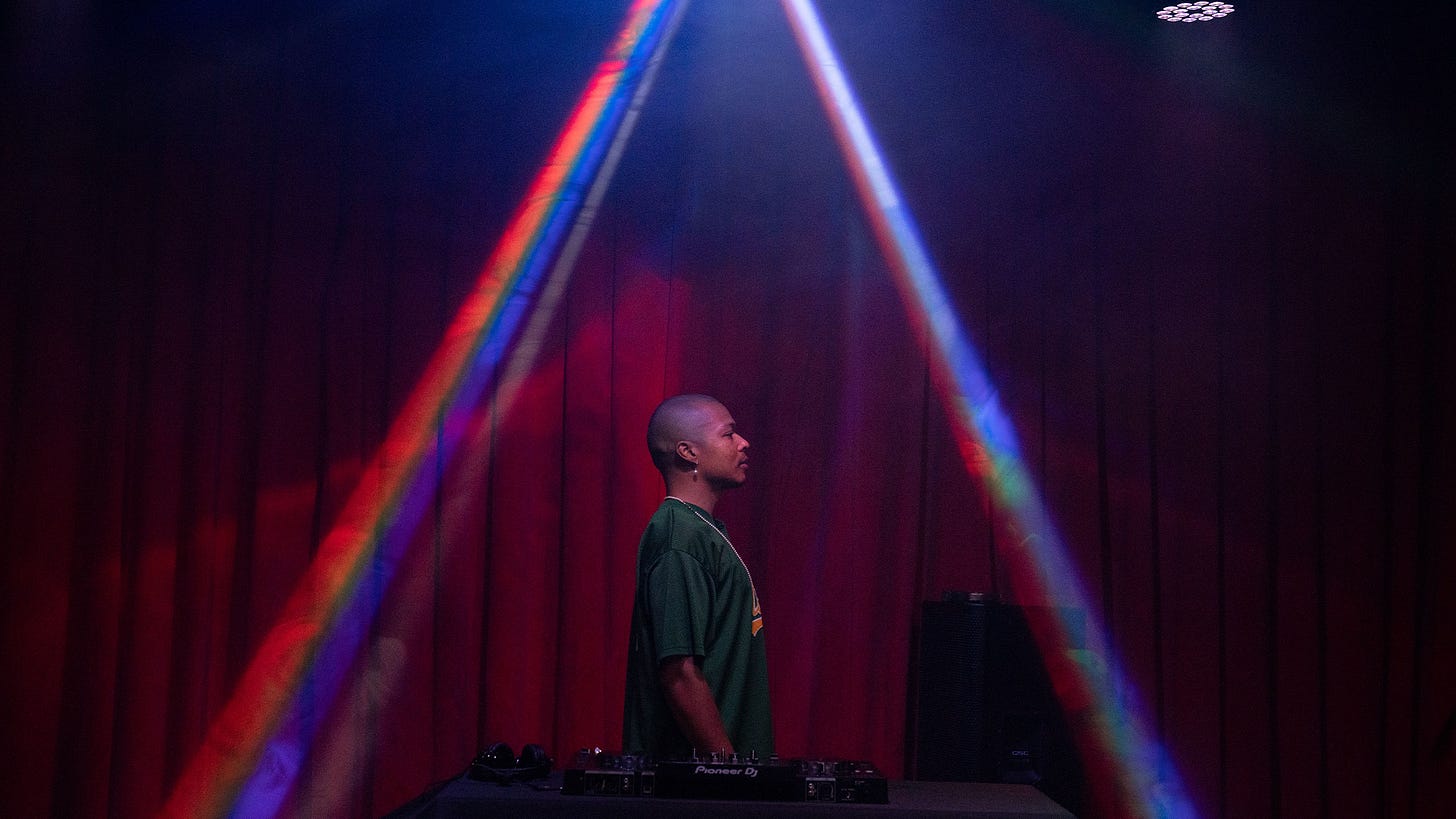Global Roundup: Japan Trans Plaintiff Win, Indigenous Mexican Women Reclaim Power, Maldives LGBTQ+ Activists, Indonesia Drag Artists, Keeping Queer Bars Safe
Curated by Samiha Hossain
Kyodo News via AP
In a first-of-its-kind decision, a Japanese court recently ruled that a trans plaintiff would not be required to undergo surgery in order to be able to change his legal gender. Since 2004, Japan has required that trans people undergo surgical sterilization and have genital surgery in order to correct their gender marker on legal documents.
In 2021, plaintiff Gen Suzuki filed a request in the Shizuoka Family Court to have his gender legally recognized without undergoing surgery. At the time, he stated that he did not wish to undergo surgery, saying that “it is wrong for the state to force an unwanted surgery.” His request was finally upheld by the court in a decision made last Thursday. Suzuki said that he “was encouraged by positive changes in society.”
I want children to hang on to their hope. I want to see a society where sexual diversity is naturally accepted. -Gen Suzuki
The Japanese Supreme Court is also currently considering a case that could rule the sterilization law unconstitutional on a national level. The Court heard arguments on September 27 in a case concerning an anonymous trans woman plaintiff. She claimed that the requirement violates "the fundamental human right to have one's gender identity respected." The Supreme Court is expected to rule on the case by the end of the year.
The Supreme Court appears to be shifting in a more trans-inclusive direction as well, based on recent rulings. This past July, the Court ruled that a trans government employee had been discriminated against when she was barred from using the women’s restroom, marking the first time that Japan’s highest court had ruled on workplace protections for LGBTQ+ people.
Left: Apolonia Plácido picking up flowers. Right: Flowers offered to the placenta of a newborn who was just born in the CAMI. Photography Tania Barrientos
Photographer Tania Barrientos followed the stories of several women who wanted to share a part of their lives as midwives and leaders in Costa Chica de Guerrero, a coastal region in southwest México. It is a geographical area that is distinguished not only by the presence of various Indigenous groups, but also by a high percentage of Afro-descendant population.
In México, Indigenous women have long relied on traditional midwives. In Guerrero, some women have given birth with midwives at Indigenous women's centers called CAMIs (Casas de la Mujer Indígena o Afromexicana). The CAMI is a house dedicated to traditional midwifery and sexual and reproductive rights that provides support with an intercultural perspective to women from the Costa Chica and Montaña regions.
The area is characterized by intense political and social movements led by women. Indigenous and Afro-descendant women, those who speak only one language — mostly their native languages — those who live in rural areas that are difficult to access or in marginalized areas of the cities, face particular struggles when it comes to their reproductive and health rights.
The CAMI Nellys Palomo Indigenous Women's Health House, coordinated and cared for by traditional Tu'unsavi (Mixteco) and Me'phaa (Tlapanecas) midwives, is specialized in maternal health and reproductive rights, which serves Indigenous, non-Indigenous and Afro-Mestizo women. CAMI was established in 2011 in San Luis Acatlán, one of the communities on the Costa Chica de Guerrero, located on the border with the Montaña region of the state. Its location is strategic, with the majority of users being Indigenous women who live in remote communities in that region and who hardly have access to official health services, whose coverage and infrastructure are insufficient.
The women who work at CAMIs play an important role within their communities — like Apolonia Plácido, the president and one of the founders of the CAMI San Luis Acatlán, who organizes mainly Tlapaneco and Mixteco women with knowledge in traditional midwifery who are also provided with constant training through workshops and activities that take place in CAMI.
Maldives (Photo by OLA24/Bigstock)
Maldives activists say that the new president won’t bring LGBTQ+ rights to the country after Doctor Mohamed Muizzu, leader of the Progressive Party of Maldives came into power last month. Currently, Maldives does not offer any rights to the LGBTQ+ community. Consensual same-sex sexual activities are prohibited in the country under the Penal Code 2014. Same-sex couples can face up to eight years in prison and 100 lashes (for both men and women.)
Now the ruling party wants international rights groups to see they value democratic values, so they don’t openly arrest opposition activists, instead they attacked those viewed as promoting liberal values. - Ulfa M. Fahmee, humanist creator and LGBTQ+ rights activist
Fahmee was forced to flee Maldives because of safety concerns after state-sponsored news outlets accused her of blasphemy. She said the Maldivian Democratic Party ran a hate campaign against her while the opposition party was protesting against government officials who were caught doing a blasphemous report. The Maldivian media is not allowed to post pictures until a conviction is secured, but the press published her pictures while she was still under investigation, putting her in danger of being harmed by extremists. Fahmee is currently living in exile.
LGBTQ+ activists have faced several challenges in the Maldives, including disappearances and death. Radical Islamic extremists in June 2012 killed blogger, LGBTQ+ activist and journalist Ismail Khilath Rasheed. Authorities did not investigate the murder.
There is going to be no change as a consequence of Dr. Mohamed Muizzu being president. Some say that it will get worse because ‘salaf’ (a group of sheikhs) is on the new president’s side, but the new president definitely won’t make things better for us. -Shakyl Ahmed, LGBTQ+ activist
Indonesian dancer Rianto, 42, says the Lengger Lanang tradition “is where masculine and feminine meet inside one body”. Photo: AFP
Lengger Lanang is performed by men dressed as Javanese princesses, wearing tight, colourful batik dresses and ornaments woven into their fake hair bun updos. The tradition is close to disappearing in the Muslim-majority country, with fewer than 100 performers courageous enough to take part in shows.
Lengger is still looked down on and negatively stigmatised. People still see men dancing as going against the norm…Lengger Lanang is where masculine and feminine meet inside one body and it is aimed to create peace within oneself -Rianto, 42, dancer and choreographer
Lengger was once a highly revered folk art, with its practitioners idolised and respected as performers able to embody both genders. But it is being challenged as prejudice grows against anything perceived as queer-related. A 2018 movie about a Lengger Lanang dancer loosely based on Rianto’s life story received critical acclaim but was banned in several Indonesian cities after conservatives said it promoted homosexuality.
Rianto has established Rumah Lengger, a centre where young dancers can practice and learn the philosophy behind the art. One of the young prodigies is Ayi Nur Ringgo, who fell in love with the tradition after watching videos at university. After taking it up, he was forced to confront negative comments from classmates, but he says they no longer affect him. Under Rianto’s wing, he and fellow dancers are working to keep the tradition alive.
I want to continue and regenerate this culture. Don’t let this fade away. -Rianto
Guerilla Pump | Photo: Chloe Aftel
It can sound like a basic task, but the reality in our community is that ID checks can often fill us and our folks with anxiety and fear. I take it really seriously; I’m not at the door to be policing bodies or policing anyone’s presentations, and I really hope that I’m actually doing the opposite. -Mack Boyle
DJ Guerrilla Pump is one of the founders of We Are The Ones We’ve Been Waiting For, a creative collective that engages in mutual aid to provide self-defense training for trans-POC individuals. The organization was founded by a group of DJs who have long hosted ballroom events and “renegades”—that is, off-the-grid parties often powered by generators and hosted in nontraditional spaces. For these events, the collective has created a protocol for security divested from policing that aims to center the safety of BIPOC attendees.
For each event, the collective envisions and enacts a “security squad”—a crew of people, the majority of them queer, trans and/or BIPOC—trained in de-escalation and conflict resolution. Importantly, if there is a risk of police interaction, one person is designated to communicate with the police; this person must be comfortable with the risk and actively consent to the potential dangers of the position. Often, Guerrilla shares, this person is white.
We wanted to create safe space without being aggressively violent, and without being super cis-patriarchal about it. -DJ Guerrilla Pump
Similar protocols can be observed in queer spaces. For Friends & Family, this means calling community alternatives to the police, like the Anti Police-Terror Project, in a crisis and engaging all staff to provide assistance instead of leaning on a lone security guard in the event of a conflict. When there is an event that shakes staff, the team engages in active processing for all who witnessed it. It’s a small gesture of care, an acknowledgement of the horrors that those who work in, or spend time in, queer nightlife spaces can be forced to witness and reckon with.
Being a door person or working security, there’s this idea that you have to be a badass, or have to be assertive. [But] I think that there’s such a way to hold this work with more care. I have this memory of a coworker at Friends & Family telling me how they loved that their door person is a tenderqueer. There’s a way to do [the work] while holding folks’ whole humanity. -Mack Boyle
Samiha Hossain (she/her) is an aspiring urban planner studying at Toronto Metropolitan University. Throughout the years, she has worked in nonprofits with survivors of sexual violence and youth. Samiha firmly believes in the power of connecting with people and listening to their stories to create solidarity and heal as a community. She loves learning about the diverse forms of feminist resistance around the world.






